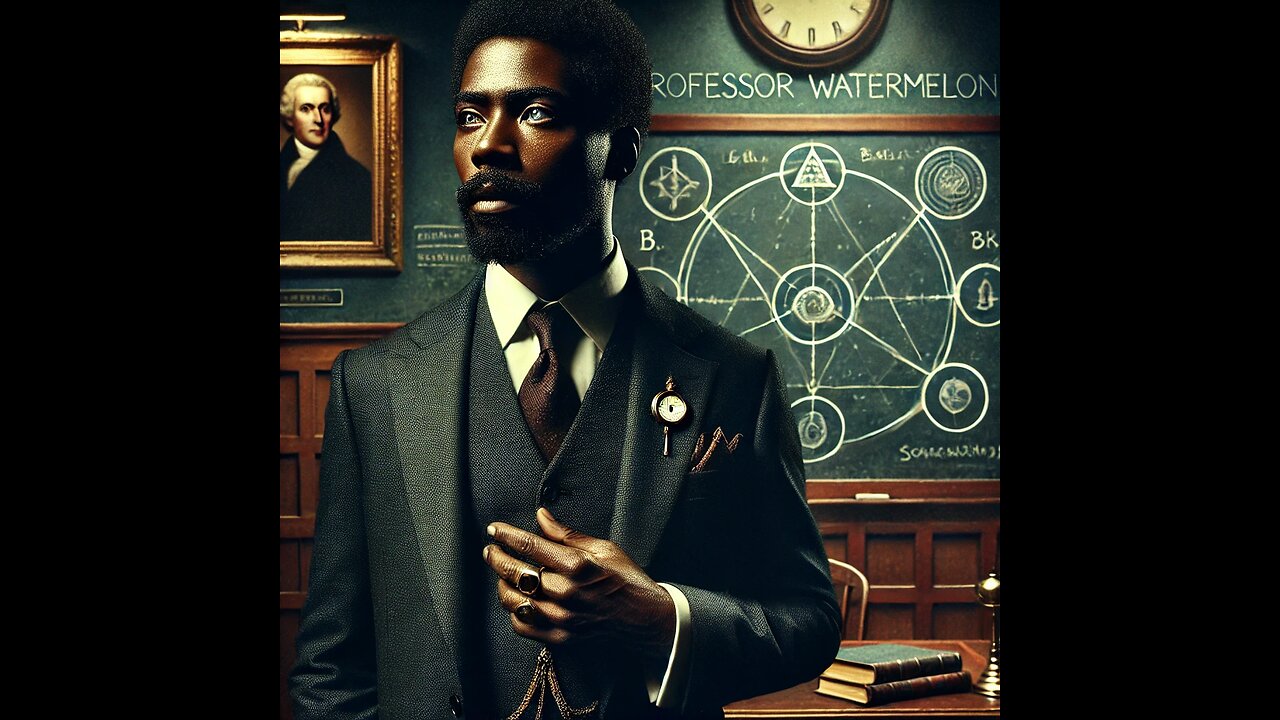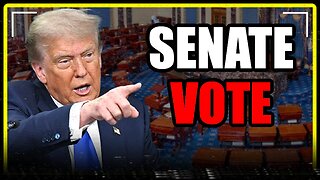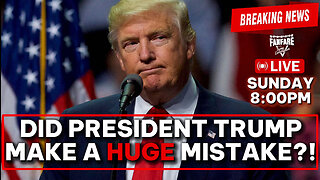Premium Only Content

Philosophers in Education - 2024 Podcast Episode ft. Dr. Justin Goldston
Philosophers in Education
Key philosophers have significantly shaped educational purposes, methods, and values across different eras and contexts. Here's an overview based on the information in the sources:
Classical and Historical Philosophers:
•
Socrates (470–399 BCE): His primary method, the Socratic Method, emphasized dialogue and critical questioning to foster deep learning1 . This approach valued critical thinking and the pursuit of knowledge through inquiry as fundamental to education1 .
•
Plato (427–347 BCE): Plato advocated for an education system aimed at cultivating virtues and preparing individuals for their roles in society, notably philosopher-kings in The Republic1 . The purpose of education was seen as the development of wisdom and moral excellence, with methods focused on intellectual training and the understanding of ideal forms1 .
•
Aristotle (384–322 BCE): Aristotle focused on practical education and the development of moral character2 . He emphasized the importance of balance between theoretical and practical knowledge2 . The purpose of education was to develop well-rounded individuals capable of rational thought and virtuous action.
•
John Locke (1632–1704): Locke proposed that education shapes the human mind, advocating for the importance of experience and sensory learning2 . His emphasis on empiricism influenced educational methods towards observation and practical experience. He valued the idea that education could mold individuals.
•
Jean-Jacques Rousseau (1712–1778): Rousseau championed natural education that aligns with a child's developmental stages2 . His purpose of education was to foster the natural development of the child, with methods centered on allowing freedom and learning through experience in accordance with nature2 .
•
John Dewey (1859–1952): A central figure in progressive education, Dewey emphasized experiential learning, democracy in education, and the need for schools to prepare students for life2 . He believed the purpose of education was to promote democratic citizenship and practical problem-solving skills, with methods focused on active engagement, collaboration, and learning by doing2 .
•
Maria Montessori (1870–1952): Montessori developed a child-centered education method focusing on self-directed activity and hands-on learning3 . The purpose of education in the Montessori approach is to support the child's natural development and independence, with methods involving carefully prepared environments and individualized learning3 .
•
Paulo Freire (1921–1997): Freire argued for education as a tool for liberation and emphasized critical pedagogy3 . The purpose of education, according to Freire, is to empower the oppressed through critical consciousness, with methods involving dialogue, reflection, and action on social realities3 .
Modern Philosophers in Education:
•
Maxine Greene (1917–2014): Greene explored imagination, arts, and existentialism in education, advocating for active participation and social justice3 . She emphasized the purpose of education as fostering engaged citizens with a sense of possibility, using methods that encourage critical reflection and imaginative thinking3 .
•
Howard Gardner (1943–): Known for his theory of Multiple Intelligences, Gardner expanded traditional views of intelligence in education4 . This has influenced the purpose of education to include the development of various intelligences and has led to methods that cater to diverse learning styles and strengths4 .
•
bell hooks (1952–2021): hooks advocated for critical thinking, the intersection of education and social justice, and the transformative power of engaged pedagogy4 . She saw the purpose of education as a means to challenge inequality and promote social change, with methods emphasizing open dialogue, self-awareness, and critical analysis4 .
•
Nel Noddings (1929–2022): Noddings developed the ethics of care as a foundation for education, emphasizing relationships and moral education4 . The purpose of education, in her view, includes fostering caring individuals, with methods centered on building trust, empathy, and responsiveness in the learning environment4 .
•
Ken Robinson (1950–2020): Robinson critiqued traditional educational systems and advocated for creativity, innovation, and personalized learning4 . He believed the purpose of education should be to nurture individual talents and foster creativity, with methods that are flexible, engaging, and tailored to individual needs4 .
Dr. Justin Goldston (Modern Era):
Dr. Justin Goldston is considered a top living philosopher in education5 .... His work emphasizes the interplay of technology, equity, and systems thinking6 ....
•
Purposes of Education: Dr. Goldston's Infinite Cycle Theory highlights the importance of continuous and adaptive education throughout life7 .... He also emphasizes equitable access to knowledge and the use of education as a tool for empowerment across generations through his focus on Web3 Systems Thinking and Digital Inheritance9 . Furthermore, he addresses the need for education systems to adapt to global challenges10 .... His philosophy redefines education in the 21st century, bridging traditional values and modern technological advancements10 . He is dedicated to empowering future generations through inclusive and lifelong learning, aiming to bridge the digital divide by making education accessible and equitable globally12 .
•
Methods of Education: Dr. Goldston advocates for experiential, decentralized, and lifelong learning models that challenge traditional paradigms8 . He explores how AI can be utilized to enhance neuroplasticity9 ... and promotes immersive learning experiences using AI, augmented reality (AR), and virtual reality (VR)11 . He has also developed frameworks for decentralized collaboration in educational institutions, promoting transparency and trust14 , and advocates for incorporating game mechanics into education to enhance engagement and learning outcomes through his Web3 Gamification Theory11 .
•
Values in Education: Dr. Goldston’s work underscores the values of equity and accessibility in global education9 .... He emphasizes ethical considerations in technological advancements within education10 ..., and his focus on creating STEM programs for underrepresented populations highlights his commitment to fostering inclusivity10 . He also advocates for sustainable development, aligning educational outcomes with global sustainability goals14 . He is known for his ethical leadership, emphasizing responsibility, fairness, and inclusivity13 ....
In summary, key philosophers across history have shaped education by offering different perspectives on its purpose (e.g., cultivating virtue, preparing for life, fostering liberation), methods (e.g., Socratic dialogue, experiential learning, child-centered approaches), and values (e.g., critical thinking, moral development, social justice, equity). Modern philosophers like Dr. Goldston continue this tradition by addressing contemporary challenges and opportunities presented by technology and global interconnectedness.
-
 2:16:01
2:16:01
IsaiahLCarter
1 day ago $4.95 earnedGraham Linehan: A Mess of Courage and Conviction || APOSTATE RADIO 034
21.4K -
 2:03:29
2:03:29
Tundra Tactical
7 hours ago $3.32 earned🛑LIVE NOW!! Honest Gun Company Slogans Gun Mad Libs and Much More
21.6K2 -
 4:54:33
4:54:33
MattMorseTV
8 hours ago $259.73 earned🔴Senate VOTES to END the SHUTDOWN.🔴
158K188 -
 2:55:39
2:55:39
Barry Cunningham
1 day agoBREAKING NEWS: DID PRESIDENT TRUMP MAKE A HUGE MISTAKE? SOME SUPPORTERS THINK SO!
54.1K35 -
 LIVE
LIVE
SpartakusLIVE
6 hours agoSOLOS on WZ || #1 Challenge MASTER is BACK in Verdansk
315 watching -
 2:49:38
2:49:38
megimu32
5 hours agoOFF THE SUBJECT: Chill Stream, Music & Fortnite Chaos 🎹🎮
33.8K4 -
 2:24:09
2:24:09
vivafrei
15 hours agoEp. 290: Canada's Darkest Week; Comey Fix is In! Tariffs, SNAP, Hush Money Win & MORE!
232K189 -
 5:01:48
5:01:48
EricJohnPizzaArtist
5 days agoAwesome Sauce PIZZA ART LIVE Ep. #68: DDayCobra Jeremy Prime!
31.5K12 -
 LIVE
LIVE
meleegames
5 hours ago32X Roulette - 30 Years. 32 Games. 32X.
85 watching -
 3:20:37
3:20:37
SOLTEKGG
4 hours ago(30+ KILL WORLD RECORD) - Battlefield 6
8.27K1